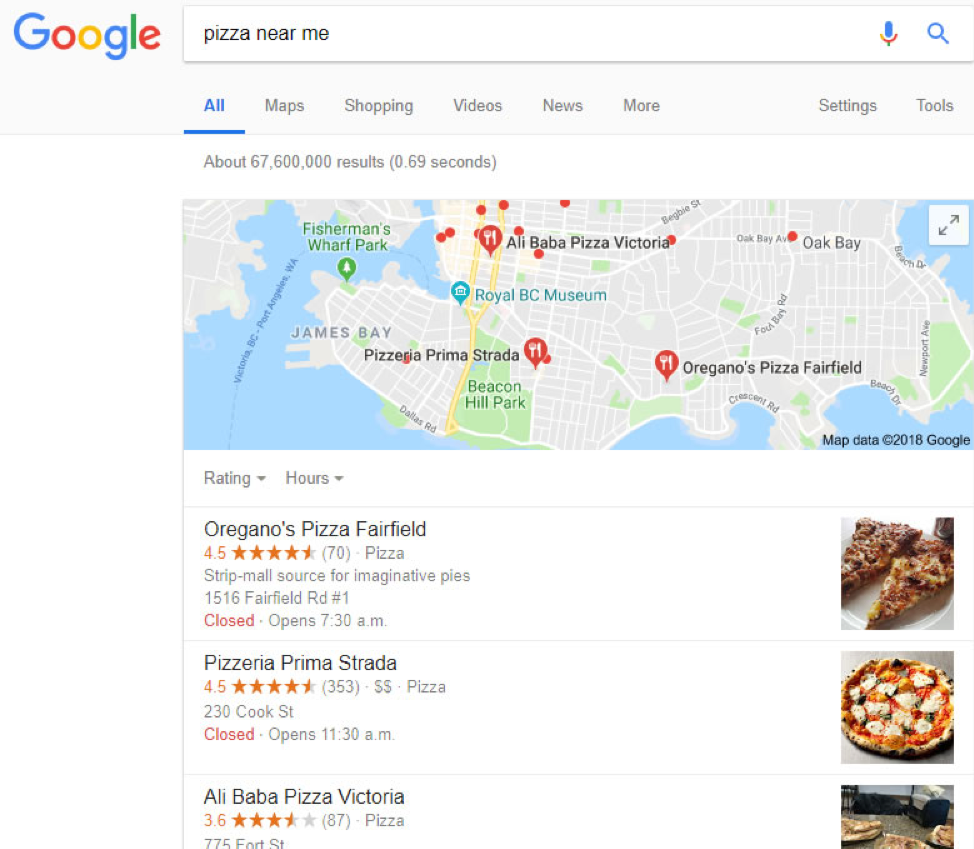You may have read Emma’s post on the Google Knowledge Panel and wondered exactly what an entity is. If you’re not yet familiar with the term or what it means take note – now is the time to wrap your head around it. Entities are without a doubt one of the most powerful ideas and ideations in search.
I’m going to go out on a limb here and predict that in the not-to-distant future entities will surpass links and content as the key area of interest for SEOs and those pursuing rankings. As we’ll discuss however, entities rely on both to carry this influence but what we’ll be looking at is how to use both to strengthen and connect entities, not increase PageRank and capture new keywords.
Great … But What’s An Entity?
At this point you’re likely no better off than when you read the title. What I wanted to stress above is the importance of entities in search. Now we’ll dive into what they are after which I’ll be making the case for my claims above and outline some approaches to help you use this information to safeguard or build your rankings into the future.
Let’s start with Google’s definition of an entity from one of their patents on the subject (yes – plural):
Entity: a thing or concept that is singular, unique, well-defined and distinguishable.
So, does that clear things up?
I used to think of entities basically as nouns (a person, place or thing). I was basically wrong, they go far beyond that. An entity can be an idea, an adjective, a concept, etc. Anything that can be uniquely defined. The color red for example. Or the Pythagorean theorem. Or this very article. Or the concept of entities that it’s discussing. Or a word on it. Or a letter in that word. Or a pixel in that letter. Everything. Including an author who at 300 words still hasn’t quite gotten to the point …
So, What Is The Point Dave?
Let’s consider that the name Dave is an entity. In fact, ‘Dave Davies’ is an entity. In fact, there are four (at least) in my city. There are three in this photo:

Each of these entities has a connection. They all have the name Dave Davies. There are some other similar traits. They will all have the gender “male” and number of other crossovers but the ways they differ is far greater. And that’s where entities come in.
Let’s use as our example the most famous ‘Dave Davies’ in this image and look at just a basic illustration of the entity ‘Dave Davies’ from the band The Kinks. If you’re unfamiliar with him here’s who we’re talking about:
Now, let’s take a look at just a small piece of his entity graph in a very poor illustration based on one from a Google patent but tailored to our example here:

What you can basically see here is a graphic of the entities (the circles) and the relationships (the lines). If you think this type of relationship charting looks familiar it’s probably because it looks a lot like:

Are you starting to see the connections? Well Knowledge Panels are just the tip of the iceberg but they serve as an excellent visual example of entities and their relationships used directly in search.
What do you think Google is using when they answer ‘near me’ queries? Google needs to understand specifically the relationship between a website or other data source, and a company and what they offer to get a result like:

They need to understand the entity of location, the companies, the various entity attributes (ratings, images, etc.) which are also entities unto themselves as well as connecting those company entities to the entity ‘pizza’.
So, we can see from these couple examples the use of entities and their relationships in local search and Knowledge Panels. Everything in Google’s many patents on the subject carry this far further.
Google And Links
Let’s think about why Google cares about links. They care about them because they treat them as a ‘vote’ of one site to another. What they’re really trying to get at (though they didn’t know it at the time they invented PageRank) in understanding the relationship between one entity (the linking site) and the target (the linked-to site). And they started weighing in additional factors like the PageRank of the linking site (the PageRank score is an entity), the anchor text used (entity), the topical relevance (the topic is also an entity) and more (sorry – they didn’t hand me their PageRank-factor list or I’d include them all).
All this work on links was really to answer one basic question: How does one entity relate to another?
So, the question we can ask ourselves is: if Google gains a better understanding of entities than they have on links, why would they use links?
The short answer is they wouldn’t, at least not in the context we view them today. They may use them to confirm associations, but not as the primary factor.
But Why Google … Why?

And why would they do this? The answer is simple if you think about how you use your devices. We have our computers, sure – but now we have phones, now we have Google Homes, now we want to cast our videos onto our TVs, now we want Google to know where we are in time and space and direct us to our destination in the quickest way possible, now we want Google to tell us where the nearest pizza shop is. We demand it, that’s why.
And let’s think about the SERPs themselves. All those Featured Snippets, Knowledge Panels, answers, etc. … those are only possible due to Google’s understanding of how entities connect.
So, What Can You Do?
I hope I’ve made the case for understanding entities and more, I hope I’ve spurred in you the desire to keep your eyes and ears open for more information on them as you encounter it. It’s not a scary, highly technical area of SEO. Well, alright – it can be but no more than links, content strategy or how to get the most from your analytics. In the meantime, though – what can you do to increase your entity value?
This question has many answers. Increasing the value of the entity that is your website (which itself contains countless entities of course) requires simply reinforcing your value and the relationships to that which you want to be associated.
Some simple things you can do are:
• Create content that doesn’t just talk about your products and services but discusses the subject of your site more deeply. Content that reinforces the association of your website to the subject for which you want to rank. This will have the secondary benefit of increasing your odds that Google will see you as answering multiple user intents.
• Build relevant links and get your brand and site mentioned on topically relevant pages. Links are better than mentions but as Google works harder and harder to understand your entity it’s possible (dare I say probable) that they will no longer require links to assign the association between entities.
• Add Schema to your site. Schema is an easy way to add information to your site about your association with specific topics, brands, products, services, etc. and has a host of other benefits.
• Keep your Google My Business updated. If you don’t have a Google My Business listing you probably should have been doing that instead of reading this article but you’re almost done so do that when you’ve finished. This is where you specifically tell Google a ton of information about your site, company, topical relevancy and host of other information. You can also use it to add additional information into your Knowledge Panel to draw the searcher’s eye so it has other benefits as well.
There is little that is more important and we’ve only brushed the surface here. Pay attention to what’s happening with devices and pay attention to everything you encounter about entities. This is the future.
Now, go grab yourself an entity that is coffee inside an entity that is your mug with a relationship to the entity that is your preferred temperature and get started.

